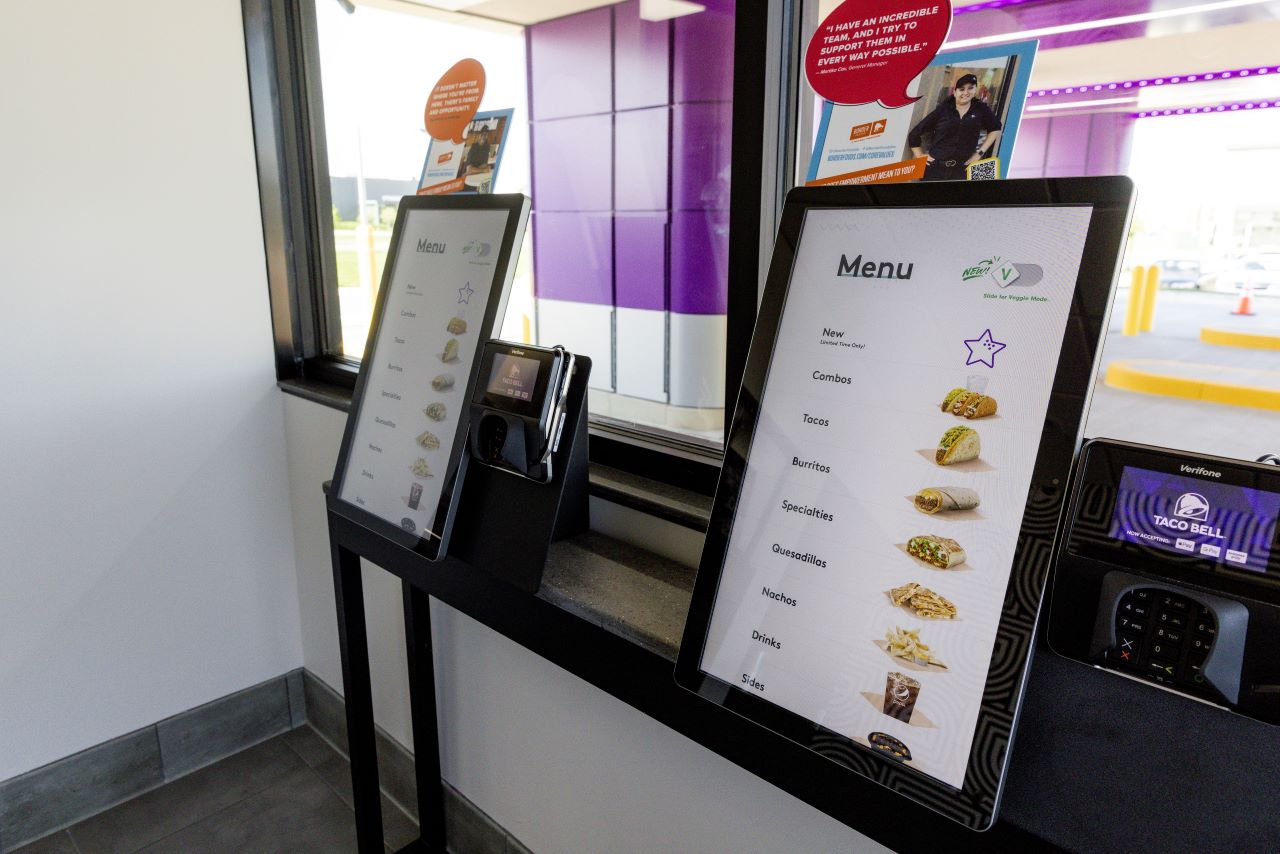Content Spotlight
Tech Tracker: How digital tech is capitalizing on the hot restaurant reservations market
Tock and Google now offer experience reservations; Diibs launches as a platform for bidding on last-minute reservations
The Byte by Yum collection of products is expected to enable a faster adoption of digital tools throughout the global system

Yum Brands has been working in earnest throughout the past several years to ramp up its digital business, from acquisitions of companies like Dragontail to the development of proprietary solutions like its Poseidon point-of-sale system.
Last year, executives shared that the company is accelerating its technologies throughout its four brands – KFC, Taco Bell, Pizza Hut, and Habit Burger & Grill – but much of that rollout has been uneven across markets or even brands throughout Yum’s giant global footprint. Now the company is focused on creating more consistency and efficiency with its tech stack and has created Byte by Yum! to achieve this goal.
Byte, announced today, is a comprehensive collection of software as a service (Saas) AI-driven products created to enable easier operations and improved customer and employee experiences.
With its creation, Yum is phasing out legacy names and branding for technology products such as Poseidon and SuperApp, and will move all products under the Byte brand. At present, Byte includes online and mobile app ordering, point-of-sale, kitchen and delivery optimization, menu management, inventory and labor management, and team member tools.
Joe Park, who joined Yum in 2020 and was promoted to chief digital and technology officer last year, will serve as president of the new division while also maintaining his current role. During a recent interview, Park said the idea of consolidating and integrating all of the tech solutions Yum has developed or collected throughout the years will make things easier for franchisees, which is the top priority for the majority franchised company.
“The average (quick-service restaurant) has up to 15 tech vendors today. Depending on your brand, some have over 30. That makes it really hard to run a restaurant,” he said. “There is way too much data sitting everywhere. It needs to be in one spot with a single point of contact.”
Previously, Yum had teams dedicated to its tech solutions, like the SuperApp and the Yum Commerce Platform. Those teams, including engineers and product managers, have all been brought under the Byte umbrella, which has about 600 total employees. Notably, each brand’s tech team remains in place and there are about 2,000 digital employees within the Yum system around the world.
Park said the creation of AI-powered Byte fits a broader trend that is happening with the digital space, and likens it to Microsoft 365’s 2023 launch of Copilot, which is an AI-powered tool that allows users to leverage the variety of Microsoft products through one interface.
“In QSR, what I’ve learned is it isn’t always about the most advanced technology, it’s about those that build the most compelling ecosystems,” Park said. “With this, we’ll have Byte POS, Byte mobile app, delivery, we can start putting AI in to assist franchisees with scheduling labor or forecasting. We think having these little copilots in the app will make the technology more accessible and communication easier. It won’t feel like tech.”
Today, about 25,000 restaurants in the Yum Brands system have at least one technology that is now a part of Byte. Most of those solutions were initially deployed in the U.S., where each of the four brands has at least one element of Byte, processing more than 300 million digital transactions a year.
Park said Byte will help facilitate the “next wave of large markets” internationally. Though there is no timeline for tech deployments for the remainder of Yum’s 59,000-plus restaurants, Byte should facilitate more speed to market.
“25,000 restaurants is a big proof point. What we are seeing is faster deployment and costs continuing to get better because of scale,” Park said. “As we reap the benefits of that scale, we think international is something we’d love to accelerate.”
That acceleration, however, will be intentional. Taco Bell’s drive-thru voice AI won’t likely be a fit at international Pizza Hut locations, for instance. That’s not to say kiosks won’t, however.
“We can toggle things on and off in the Byte suite depending on what market you’re in and what your needs are,” Park said.
The ultimate goal, as has been stated by Yum executives for the past couple of years now, is to get to 100% of transactions that are digitally enabled.
“We love everything about a digital sales dollar,” Park said, noting that digital sales yield higher check sizes, easier experiences for customers and team members, and more data to create better relationships with customers.
“What excites me is a picture of Yum Brands that’s going to be 100% digital sales powered by Byte and providing the easiest experiences for customers, team members and franchisees,” Park said. “Today we see so many opportunities where tech isn’t always helpful, and if there’s a way to connect data, products and experiences, life is going to be better for everyone. That’s our relentless goal.”
Contact Alicia Kelso at [email protected]